School Environments Improve With the Service and Resources of Volunteers
According to UNESCO, half of Latin American fifteen-year-olds can’t achieve minimum reading proficiency. That is, they’re able to read, but fail to understand what they read. This is one of many sad outcomes of inadequate infrastructure, lack of school supplies, untrained teachers, unsanitary facilities among other deficiencies in school environments in struggling communities. We asked our community partners in Ecuador and Peru about the challenges of providing adequate education and how Global Volunteers can support them in what’s left to do.
Perhaps more than any other human activity, education stimulates the advancement of entire societies. H. G. Wells wrote, “Civilization is a race between education and catastrophe.” President John F. Kennedy said it’s up to each generation to determine the winner of that race. Countries that promote universal and quality education benefit from stronger economies, better healthcare, a more stable workforce, greater innovation, and increased longevity. Ensuring that children have access to adequate and effective education is a prime responsibility of every generation. But this obligation is not geographically delimited. While parents are on the first line to educate their children, it’s in the interest of the global society to ensure that all parents can fulfill that duty.
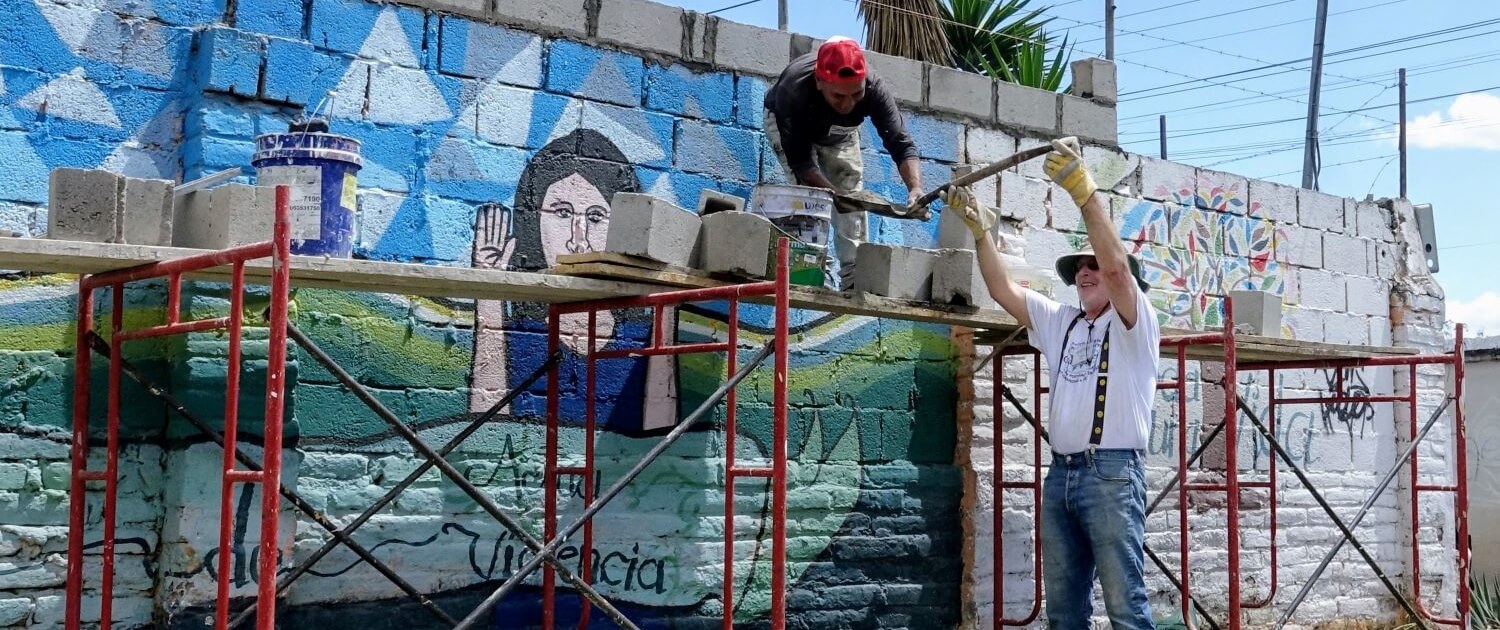
Many developing countries don’t offer functional school buildings, adequately furnished classrooms, current textbooks, adequate school supplies, safe play areas, stimulating classes and well-educated and trained teachers uniformly. Global Volunteers works with South American community partners to upgrade their capabilities. In Calderón, Ecuador, FUNDAC (Foundation of Ladies of Calderón) provides education and care in two early childhood development centers for children one to four years of age from economically disadvantaged families. In Ventanilla, Peru, Sagrada Familia is a children’s home that, besides hosting 250 at-risk children, provides care and education to more than 1,000 children ages one to 18 from the surrounding shanties.
The Resource Struggle
Parents, teachers, and school administrators in developing communities want to provide the best education possible to children, but several factors complicate or completely frustrate their efforts including:
- Insufficient textbooks, supplies and materials
- Inadequate teachers’ pay and training
- Decrepit school buildings
- Lack of clean water, sanitary facilities, and healthcare at schools
- Nonexistent or dangerous playground equipment
- Tuition and required uniforms beyond the means of poor families
- Inadequate school feeding
- Absenteeism due to infectious disease
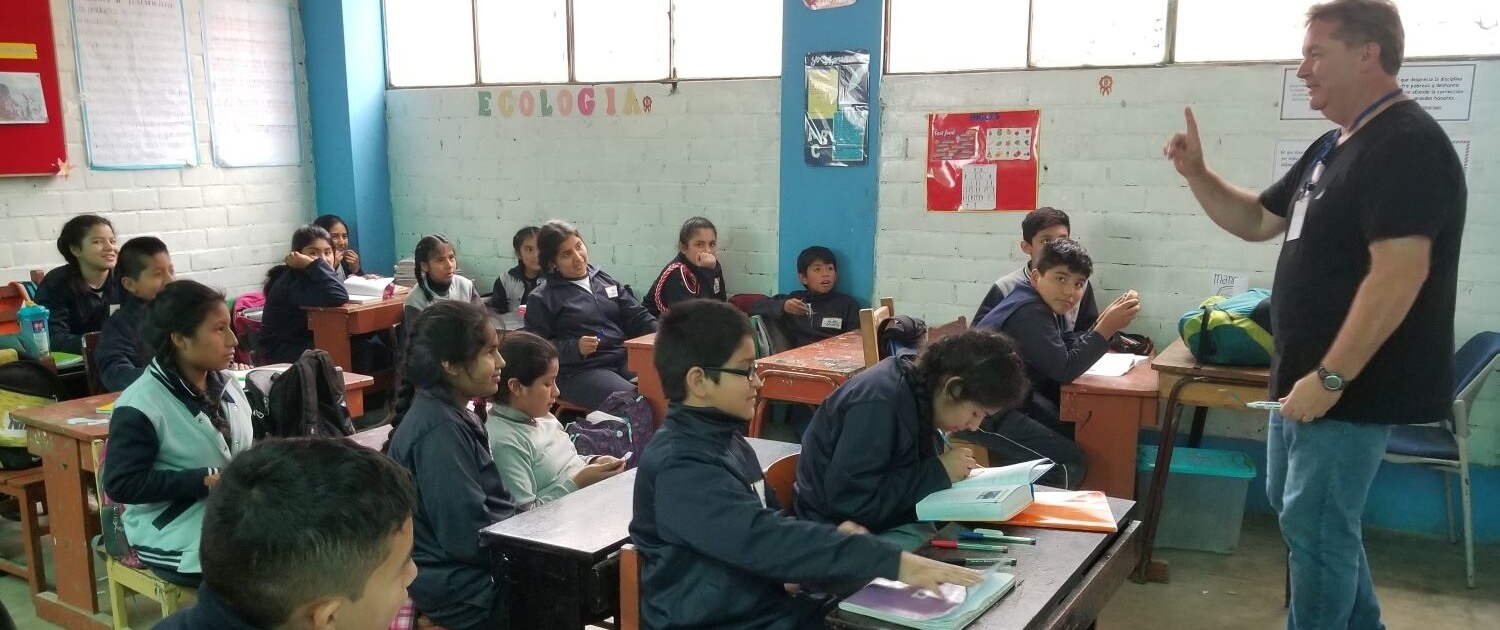
Lack of resources is complicated by meager budgets. Sagrada Familia Founder and Director Miguel Rodríguez points to the poor condition of their whiteboards and desks throughout the school, which complicates learning. Added to that is theft of instructional materials they can’t adequately secure. Quarantining since March, the community has struggled to meet the resident children’s educational requirements with limited internet and computer access. In Ecuador, María de Lourdes Erazo, FUNDAC member, similarly says the COVID-19 pandemic revealed how few families have the resources or technical understanding to provide virtual learning for their children. Their two preschools have been closed since the pandemic began. So for some, instruction has all but ceased completely. “We would like to have the means to provide the parents lacking resources with help so they can access the educational platforms for the children to continue their education,” María de Lourdes says.
The Volunteers’ Role
Ordinarily, helping to upgrade, expand and repair school facilities and assisting teachers in their classrooms are primary service projects for Global Volunteers team members. These assignments will take on greater urgency when volunteers are able to return to these communities. Miguel asserts, “Right now, we’re fixing the furniture as best we can and trying to find resources to solve the problem of the whiteboards.” One major project suspended by the pandemic is renovating dilapidated school bathrooms. When school is in session more than 1,000 students must manage with only ten faucets and ten toilets, some which work only part of the time. The funds had been raised, and the work was scheduled to begin in 2020, but the pandemic hit and the lock down was declared.
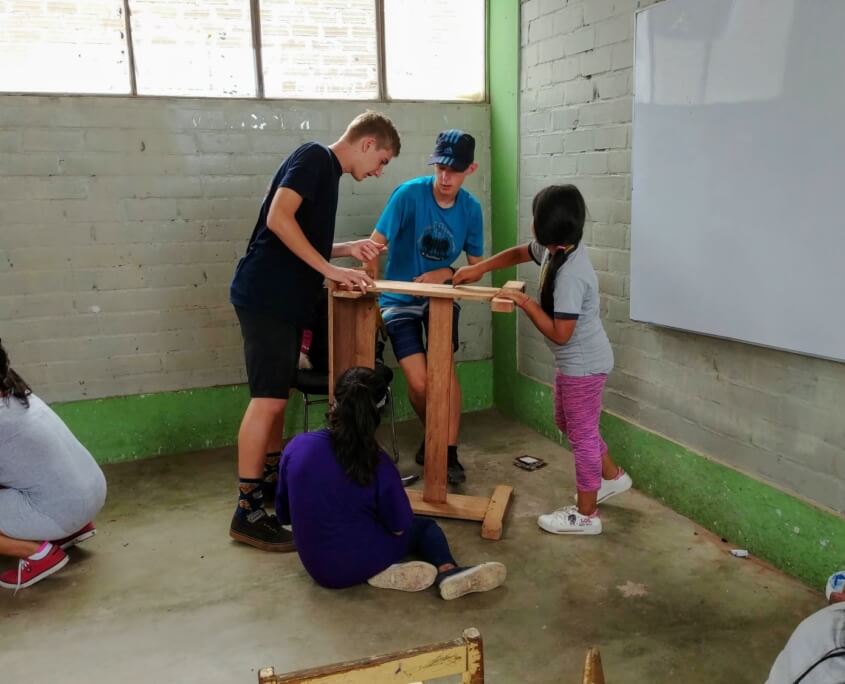
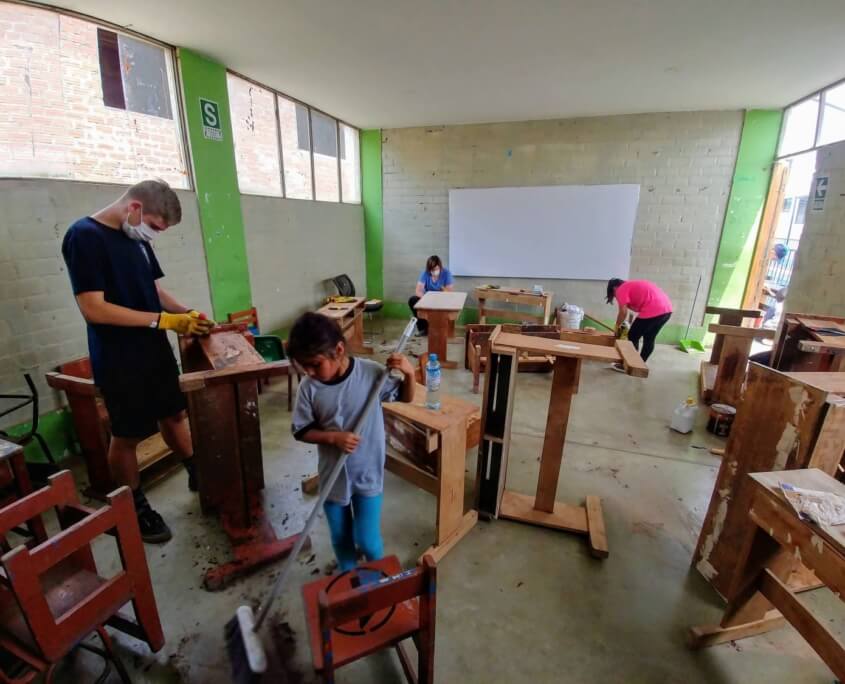
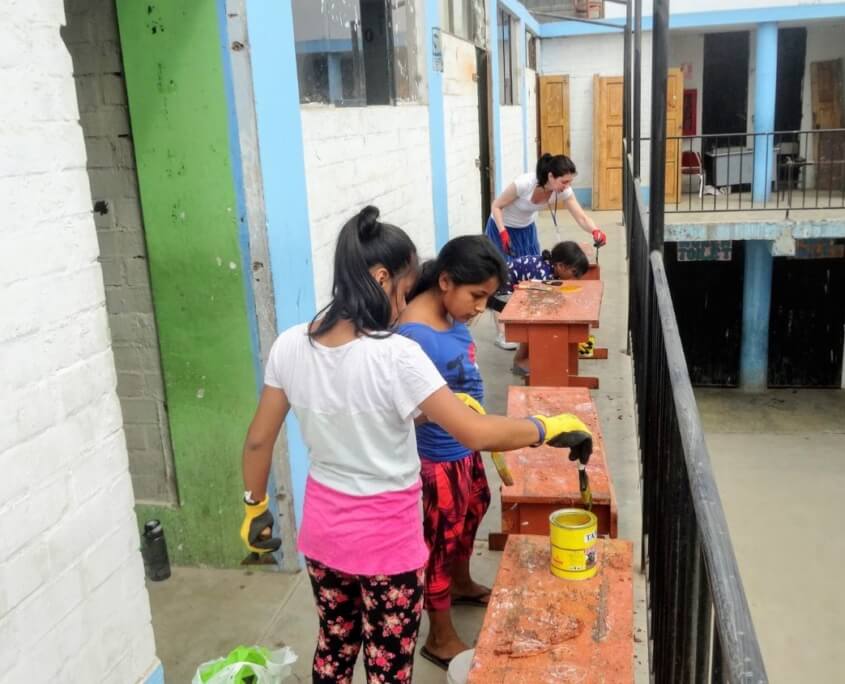
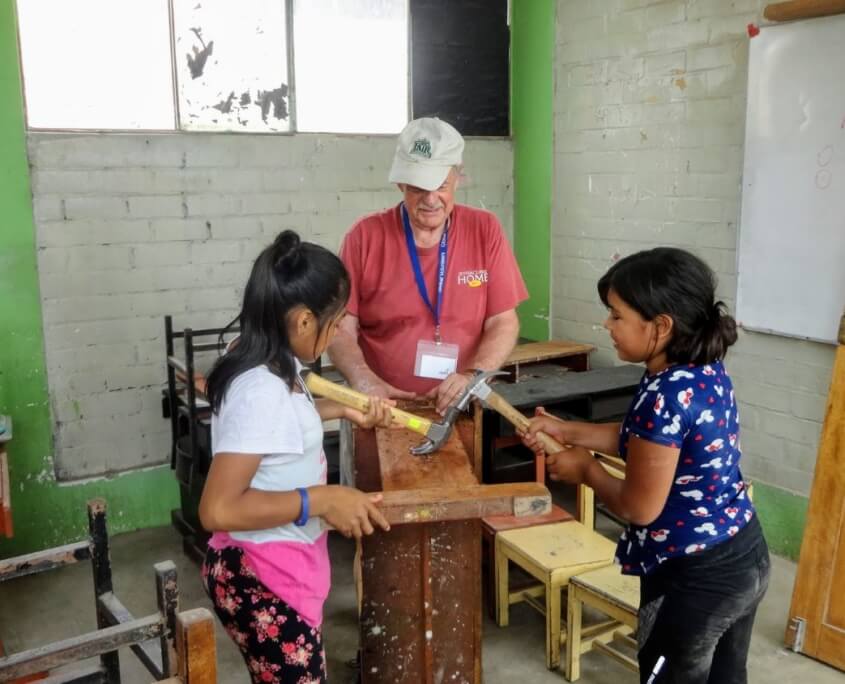
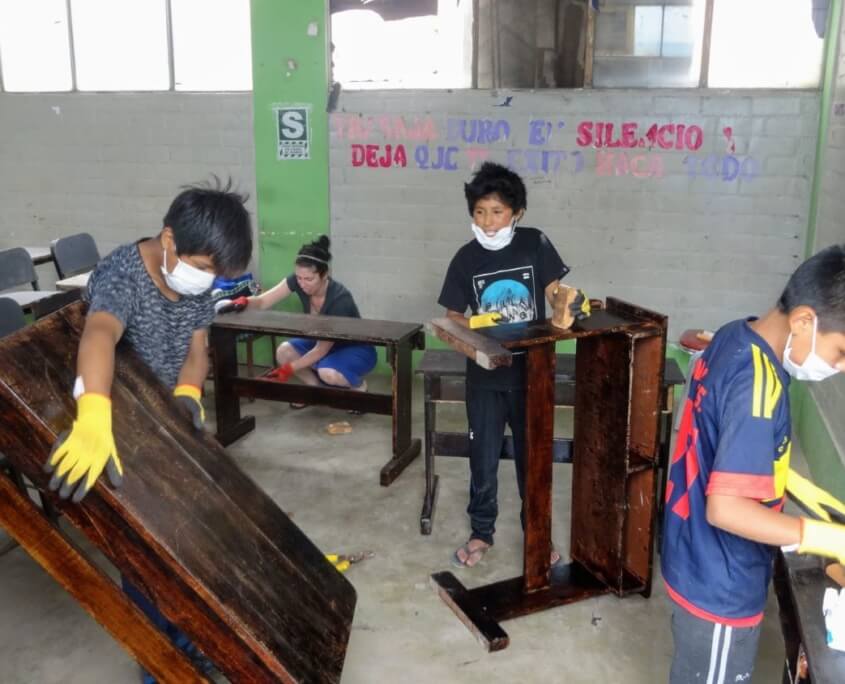
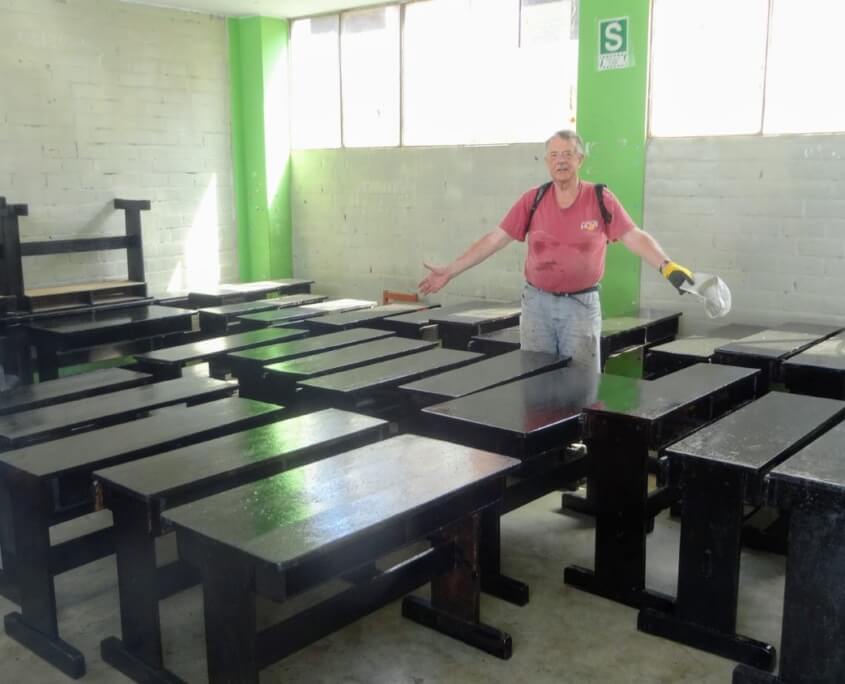
Over the years, Global Volunteers has worked together with these two leaders to direct volunteers to the communities’ most pressing educational needs. “Global Volunteers has helped us to make the physical areas optimal for our children to use,” María de Lourdes says, noting that the second early childhood center was constructed with significant volunteer and financial assistance. In 2019, the first center was given an impressive “facelift” in a two-week service program. It had been a priority for the women of FUNDAC for nearly five years. Each day, parents came to work with the volunteers on this important renovation project. Says María de Lourdes, “the learning process has improved since the work, and the dedication of each of the volunteers has made school spaces the optimal ones to work.”
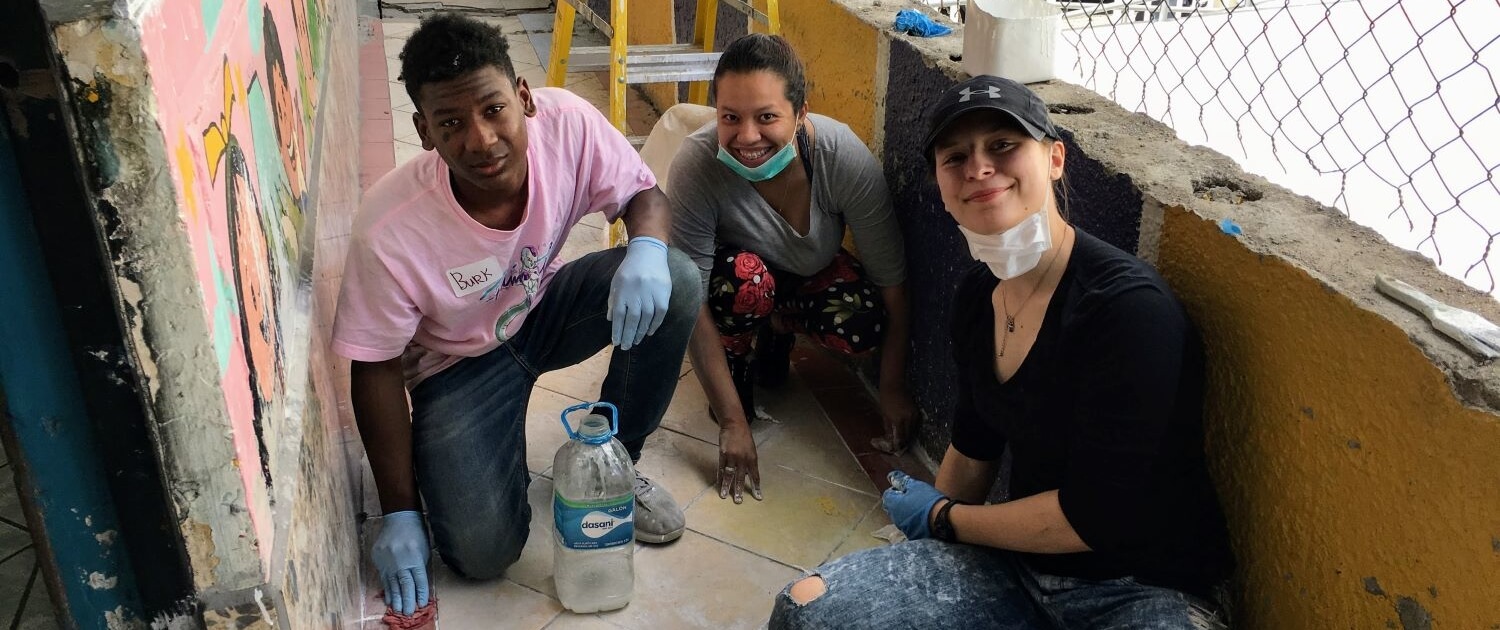
Miguel pointed out that much-needed expansion of the children’s home preschool wouldn’t have been possible without volunteers’ and donors’ commitment. “Global Volunteers helped construct part of our Pre-K, supplying not only resources but manpower to help the foremen.”
Further, he emphasized that volunteers’ contribution to school environments isn’t only material. “The presence of volunteers is especially important because it generates many expectations for the students,” Miguel asserts. “They show the way to continue dreaming about what one wants. Knowing that dreams can come true and that we can have good lives is made possible through the successful people who come here and give us a lot of strength.”
These improvements go a long way, but can’t fill the gaping holes found in the education system throughout the developing world. “There will always be deficiencies and greater difficulties with those who do not have the support of their relatives,” María de Lourdes admits. “Unfortunately, because our work is with low-income families, we believe that the performance of the children will be a little uneven.” Global Volunteers has committed to work with our partners to help identify and address deficiencies with material and volunteer resources. “The long-term results of the work volunteers have done can already be seen in the children because we have successful children, based on the examples they have received,” Miguel insists. “One of the ways in which they have grown is in a renewed dedication to studies, inspired by the example and the dedication of each of the volunteers who travel so far to come work with them.”
At Sagrada Familia, the bathroom project will be a priority for volunteers when they return. Running water is available only a few hours a day, so buckets of water are currently the solution until the project can resume.
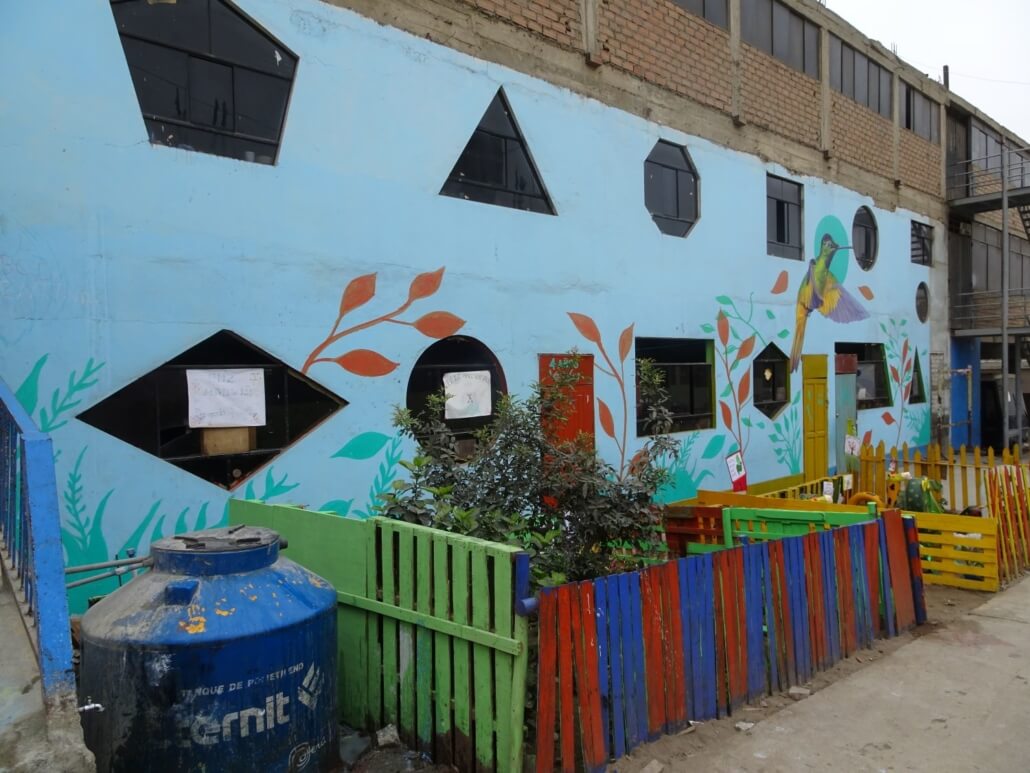
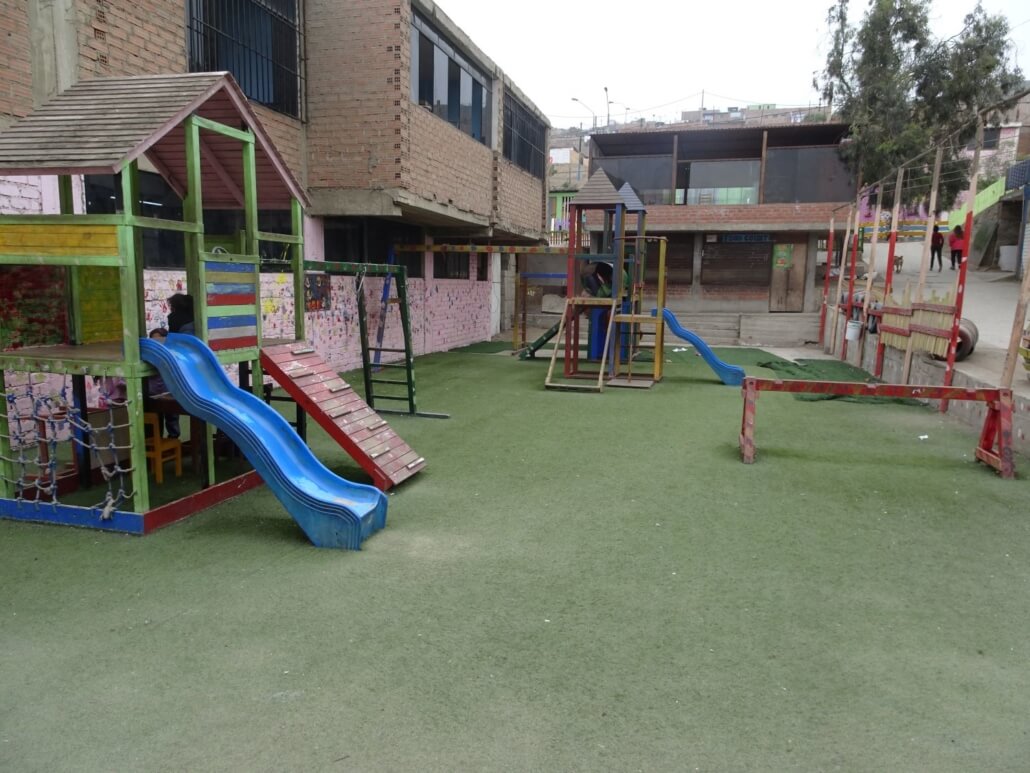
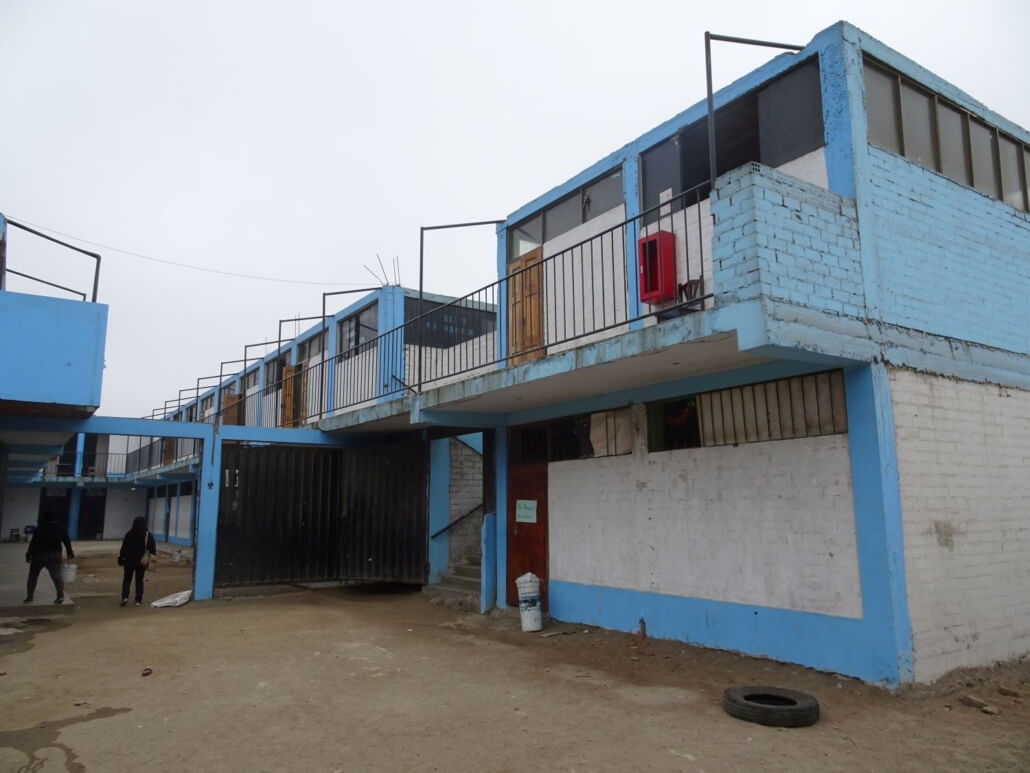
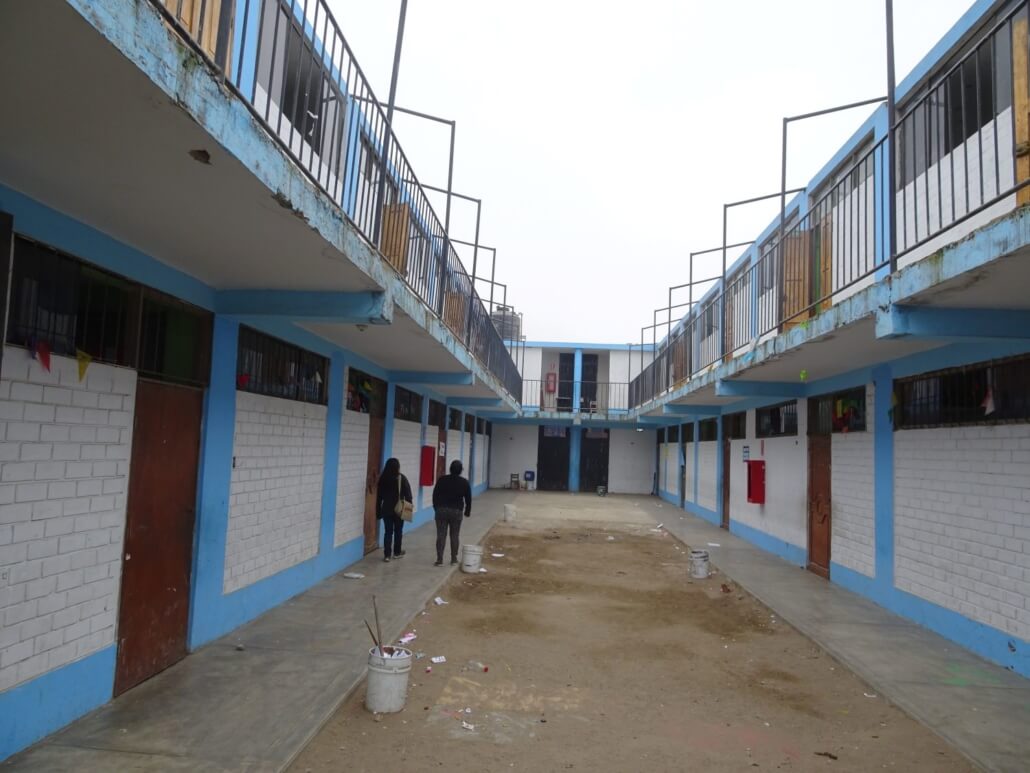
Comprehensive Work Projects
Renovation of school buildings around the world is only one of the frequent volunteer work projects aimed at improving education. In Tanzania and St. Lucia, volunteers have also worked to provide clean water, sanitary facilities, and healthcare, all which improve school attendance. Through health and hygiene workshops, medical care and construction of hand-washing stations following the development of a general clinic in Tanzania, children’s improved health has led to a reduction in absenteeism. But just as good health is necessary for children to learn, so is adequate nutrition. That’s why in Tanzania we partner with Rise Against Hunger to provide fortified meals to preschool and primary school students, while in Ecuador and Peru we also support the communities in their school feeding programs.
Healthier and well-fed children can learn much better, but their chances will be limited if they don’t have textbooks, pencils, and other necessary school supplies. Global Volunteers provides English language games, posters, and flashcards for classrooms or community centers in Poland, Greece, Cuba and Portugal, textbooks, notebooks, pencils, pens, chalk, and other supplies to schools in Tanzania and St. Lucia, and books and notebooks for schools in Nepal. Further, volunteers donate a broad array of school supplies in all the communities where we teach children. Through service and material resources, volunteers help children all over the world reach their full potential.
Read about teaching English in Peru:

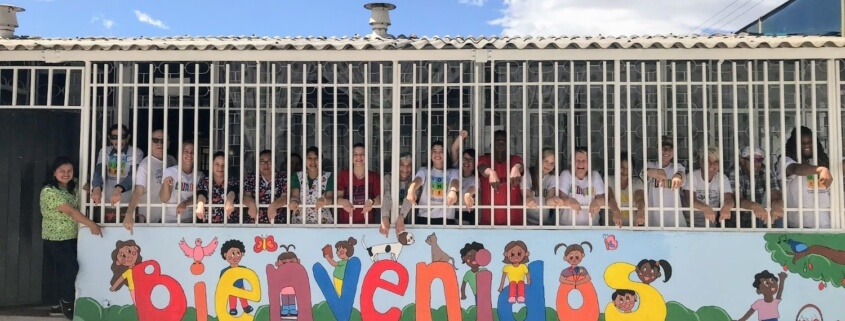


Leave a Reply
Want to join the discussion?Feel free to contribute!